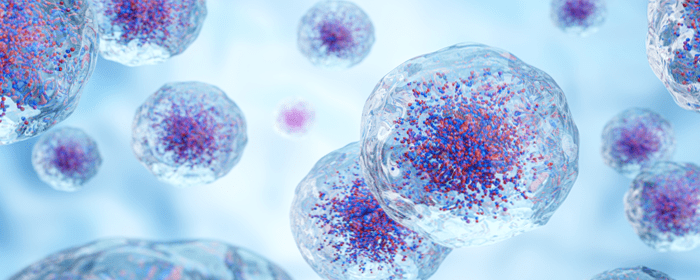
Stem Cell Based Therapies for Inflammatory Bowel Disease
Currently, it’s estimated that over 1.3 million people in the U.S., and 10 million people around the world, are living with inflammatory bowel disease (IBD). IBD is a chronic and recurrent disease characterized by inflammation of the tissues of the digestive tract[1]. Two specific diseases included under the term IBD include Crohn’s disease (CD) and ulcerative colitis (UC).
While the exact cause of IBD has yet to be determined, research seems to suggest abnormal activation of the immune system, genetic susceptibility, and altered intestinal flora resulting from mucus barrier defects play some type of role in the pathogenesis of this disease. Currently, a complete IBD treatment or cure exists. Recent research has also demonstrated that adults with IBD are more likely to suffer from other chronic conditions, including diabetes, arthritis, lung cancer, and heart disease[2].
Clinical trials using stem cell therapy have demonstrated promising results for the potential treatment of IBD, including long-term remission in some patients.
In this review, Zhang et al. review the upcoming stem cell transplantation methods for clinical application and the results of ongoing clinical trials exploring the use of stem cell transplantation as a potential treatment for IBD.
Specific stem cells, known as hematopoietic stem cells (HSC), have been shown to be particularly effective when used as a therapeutic treatment. HSCs are isolated from blood, bone marrow, and cord blood that migrate directly to damaged mucosal tissues. Initially used in patients with IBD because of other hematologic indications, including leukemia and non-Hodgkin’s lymphoma, the use of HSC therapy (HSCT) demonstrated improvement in intestinal lesions. Further study using HSCT showed that some patients with UC and CD demonstrated sustained clinical and endoscopic improvement. The authors point out that while these limited clinical trials have demonstrated promising results, the observed risk of relapse currently prevents HSCT from being classified as an effective treatment and calls for larger samples and longer-term efficacy observations.
Another stem cell treatment currently being evaluated for the treatment of IBD is the use of mesenchymal stem cells (MSCs). When injected intravenously, MSCs demonstrate the ability to reach the injured area of the intestine, colonize mucosa to control inflammation, improve microcirculation, and repair damaged tissues. A systematic review conducted by Lalu et al. found that the use of MSCs did not show significant side effects and was a relatively safe therapeutic treatment option.
Zhang et al. conclude that the significant advance in stem cell research made over the past twenty years has made them a promising therapeutic option for the treatment of IBD. Although a limited number of clinical trials have confirmed the efficacy of specific stem cells, specifically HSC and MSCs in IBD, the authors point out that the current treatments need to be improved and further research must be conducted in order to fully understand the complexity associated with the condition.
While this review focuses primarily on the use of HSC and MSC, Zhang et al. call for continued preclinical exploration of other cell therapy methods with the goal of improving the quality of life of IBD patients.
Source: “Stem Cell-Based Therapies for Inflammatory Bowel Disease – PMC.” 31 Jul. 2022, https://www.ncbi.nlm.nih.gov/pmc/articles/PMC9368934/.
[1] “Inflammatory bowel disease (IBD) – Symptoms and causes.” https://www.mayoclinic.org/diseases-conditions/inflammatory-bowel-disease/symptoms-causes/syc-20353315.
[2] “People with IBD Have More Chronic Diseases – CDC.” https://www.cdc.gov/ibd/features/IBD-more-chronic-diseases.html.

 St. Petersburg, Florida
St. Petersburg, Florida
